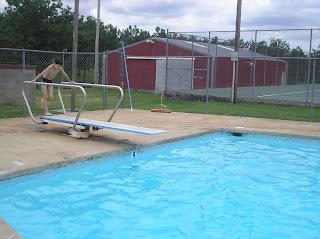Skirting Trouble in North Korea?

North Korean female soldiers might be allowed to wear the pants, albeit short pants. Very short. Or even miniskirts! But the ordinary North Korean woman had better not wear any pants. Just the traditional, lengthy skirt:
North Korean authorities are forcing women to wear skirts, to such an extent that women not wearing skirts are banned to enter the markets. Women appeal that skirts are so inconvenient at work . . . . Naturally most women prefer wearing pants to skirts because pants allow more freedom in movement. In response, authorities organized disciplinary teams with Youth Union, Democratic Women's Union and Students to inspect women's clothing. Any woman [found] without wearing skirt will be placed in forced labor, and consequently women have to wear skirts when they go out. Women in City of Nampo, South Pyongan Province, complain in unison, "All the streets are covered with disciplinary teams. No women, not only peddlers but also those going for shopping at the markets, are allowed into the market if they are not wearing skirts. Wouldn't it be better to wear the most convenient clothes in order to raise productivity . . . ? Why do they insist women wearing skirts which most women consider inconvenient?" (North Korea Today Nr. 285, July 10, 2009)But some clever women find a diverting compromise:
Forced to wear skirts, women with no skirts have to borrow them whenever they go out. Some women put pants on and wear skirts similar to a large sack on top of it. On June 12th, . . . Ok-hwa (30s) in Nampo City, South Pyongan Province, told us the following episode. "It was my turn to sweep the street for a week then. I went out to the street at five in the morning with a sweeper . . . . On the other side of the street, a male member of a disciplinary team was inspecting everyone carrying luggage on bicycles. A little later, another member of the disciplinary team started inspecting women's clothing. One of the members shouted at a woman who seems to have come from rural area to peddle vegetable, 'Why are you wearing pants?' As soon as the women heard the shout, they touched their waists and let their rolled up skirts down, and their pants disappeared. The male member of the disciplinary team instantly seemed amazed. He then motioned the women to move on. After the women moved a few steps, they exploded in laughter. The sight of women laughing was so sweet. At the same time, I heard a complaint from behind me, 'I thought I could earn a pack of cigarette. I am out of luck from the dawn.'" (North Korea Today Nr. 285, July 10, 2009)But other, younger women are reluctant to compromise:
Even with skirts, some women are not fine. Especially some young women who are anxious to display their beauty want to wear miniskirts and skirts with rather colorful flowery patterns. The problem is that those skirts are now the targets for control and ideology strife . . . . [M]iniskirts and skirts with flowery patterns are considered for women with "rotten ideology" . . . . Myung-joo (pseudonym, 20s) . . . had to pay a fine after a clothing inspection. She complained with a criticism, "Everything in this country is under control, from the top of head to the bottom of feet. Hair shouldn't be long. Hair shouldn't be loosened. Permanent wave shouldn't be done on hair. Wouldn't freedom and beauty be the most desired for women at my age? No matter what control may be carried out, young women will try to evade the control and do how they would like to do at any cost. This reality should not be ignored and neglected" . . . . Hwa-yung (pseudonym, 20s) . . . added, "Wouldn't it be nice to follow the customs of other countries if they are good? Why do we insist that only ours are the best? Everyone has his or her own way of seeing or enjoying things. I wish they didn't care about what women wear, miniskirts or tight pants. If young people were lectured on not 'to follow fad,' they will find their way to do it. That is why the control does not have any effect." (North Korea Today Nr. 285, July 10, 2009)Goodness, what with the controls on hair styles, North Korea sounds just as restrictive as a South Korean public school! All quipping aside, the contradictions in North Korean society are obvious. Female soldiers wear pants as short as miniskirts and diplay their long legs as boldly as those French ladies dancing the high-kicking cancan at the Moulin Rouge or the Crazy Horse Cabaret, but ordinary civilian women must wear long skirts even while working in the markets or sweeping the streets!
Younger women, however, have grown aware enough of the outside world to realize that there's nothing wrong with following "the customs of other countries if they are good," and they justify their choices by the individualistic principle of a woman's right to "her own way of seeing or enjoying things."
Kim Il-sung's old Juche ideology stands threatened by such views as the North's system gradually, inevitably crumbles away.
Labels: Humor, Juche, North Korea





















































